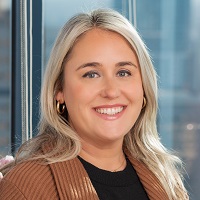Five Money Moves to Make Before Your First Child Arrives: A Financial Guide
I wish I'd known some of these when I was an expectant parent. These important steps include establishing an emergency fund, budgeting for new expenses, securing life insurance and more.


Profit and prosper with the best of Kiplinger's advice on investing, taxes, retirement, personal finance and much more. Delivered daily. Enter your email in the box and click Sign Me Up.
You are now subscribed
Your newsletter sign-up was successful
Want to add more newsletters?

Delivered daily
Kiplinger Today
Profit and prosper with the best of Kiplinger's advice on investing, taxes, retirement, personal finance and much more delivered daily. Smart money moves start here.

Sent five days a week
Kiplinger A Step Ahead
Get practical help to make better financial decisions in your everyday life, from spending to savings on top deals.

Delivered daily
Kiplinger Closing Bell
Get today's biggest financial and investing headlines delivered to your inbox every day the U.S. stock market is open.

Sent twice a week
Kiplinger Adviser Intel
Financial pros across the country share best practices and fresh tactics to preserve and grow your wealth.

Delivered weekly
Kiplinger Tax Tips
Trim your federal and state tax bills with practical tax-planning and tax-cutting strategies.

Sent twice a week
Kiplinger Retirement Tips
Your twice-a-week guide to planning and enjoying a financially secure and richly rewarding retirement

Sent bimonthly.
Kiplinger Adviser Angle
Insights for advisers, wealth managers and other financial professionals.

Sent twice a week
Kiplinger Investing Weekly
Your twice-a-week roundup of promising stocks, funds, companies and industries you should consider, ones you should avoid, and why.

Sent weekly for six weeks
Kiplinger Invest for Retirement
Your step-by-step six-part series on how to invest for retirement, from devising a successful strategy to exactly which investments to choose.
Having children can turn your life and finances upside down.
On average, a child costs two-parent families in the U.S. from $9,300 to $23,380 every year, according to the U.S. Department of Agriculture.
Before becoming a mom, I was unaware of how quickly your finances can go into the red without proper financial planning.
From just $107.88 $24.99 for Kiplinger Personal Finance
Become a smarter, better informed investor. Subscribe from just $107.88 $24.99, plus get up to 4 Special Issues

Sign up for Kiplinger’s Free Newsletters
Profit and prosper with the best of expert advice on investing, taxes, retirement, personal finance and more - straight to your e-mail.
Profit and prosper with the best of expert advice - straight to your e-mail.
However, with a little planning, you can ease into parenthood — at least the financial aspect — and be ready to tackle all the new challenges and adventures that are a little harder to prepare for.
The Kiplinger Building Wealth program handpicks financial advisers and business owners from around the world to share retirement, estate planning and tax strategies to preserve and grow your wealth. These experts, who never pay for inclusion on the site, include professional wealth managers, fiduciary financial planners, CPAs and lawyers. Most of them have certifications including CFP®, ChFC®, IAR, AIF®, CDFA® and more, and their stellar records can be checked through the SEC or FINRA.
Use these five money moves to help prepare your family financially before your new bundle of joy arrives.
No. 1: Set up your emergency fund
The biggest understatement of the year is that kids are unpredictable.
When my first son was born, my husband and I faced many "surprises," including being in the neonatal intensive care unit (NICU) for five days and attending extra doctors' appointments throughout the following year.
Luckily, we had a sizable emergency fund to fall back on and didn't need to charge those expenses to our credit cards. If we had, those costs might have built up high-interest charges. The NICU stay alone costs nearly $5,000 out-of-pocket after insurance.
As a soon-to-be new parent, I recommend that you have three to six months' worth of living expenses saved for unplanned situations such as these that are true emergencies you can't predict.
No. 2: Update your budget
When having kids, there are additional expenses you can prepare for, such as clothes, baby furniture and diapers.
However, not all items are expected, such as needing to buy baby formula. Many moms plan to breastfeed, but if the plan doesn't work out, the cost of formula can quickly add up.
On average, powdered baby formula can cost $100 to $150 per month. This amounts to about $1,200 to $1,800 per year for babies who are formula-fed exclusively.
Before you start a family, research the cost of common baby items and estimate a monthly budget for these necessities.
To help prepare for these costs, implement your new budget, which includes diapers and baby gear, a couple of months before the baby arrives to give you plenty of time to adjust.
Childcare and health care are two additional expenses that can be very high, depending on your plan.
When thinking about childcare, it's important to explore all your options, such as family, nannies and day care, or if you or your spouse plan to become a stay-at-home parent.
As of 2023, the average weekly day care cost was $343, with a nanny costing an average of $827 a week.
When it comes to medical insurance, it's a good idea (if applicable) to explore the benefits offered by your employer and your spouse's employer. Does one of your companies cover family members?
If both do, compare the medical plans carefully because some might offer you more flexibility and better coverage.
One key thing to check is whether your current insurance covers the pediatrician you have chosen.
No. 3: Look into life insurance
As a parent, you're taking on the responsibility for someone else's life and well-being, at least until they're 18 years old.
Although no one wants to think of the unimaginable — that your kid would be left without one parent or both parents — it's vital to make sure you have a plan to ensure your children will be taken care of.
Parents should have a life insurance policy to make sure that if tragedy or sickness does hit, their child is financially secure.
Looking for expert tips to grow and preserve your wealth? Sign up for Building Wealth, our free, twice-weekly newsletter.
Talk to a financial planner or insurance professional to figure out which policy fits your future family and situation best.
Also consider naming a legal guardian in your will and determine how your life insurance benefits will be managed, such as setting up a trust for your children to receive the funds.
No. 4: Update (or create) an estate plan
When I started my family, I set up a family trust and filled out all the important estate planning documents, such as a durable power of attorney and health care directives.
These documents serve as a safeguard to your family's finances and help ensure that your children are cared for if something happens to you.
It's vital for parents to set up an estate plan or update their estate plan to provide their children with security and peace of mind when they're no longer with them.
To help with this process, work with an estate planning attorney to begin the process of creating or updating all necessary documents.
No. 5: Start thinking about education planning, plus explore FSA
Consider whether you want to help with your child's education expenses, such as college. An important savings vehicle to explore is a 529 plan, which allows you to save tax-free for future education expenses. This account is a great tool to help invest in your child's future.
Another helpful account to utilize for childcare costs is a Dependent Care Flexible Spending Account (DCFSA).
A DCFSA is a pretax benefit account that is eligible for dependent care services such as preschool or after-school programs.
Now that my kids are a little older, I use this account to pay for the dreaded summer costs.
Hopefully, some of these tips will help you start planning for your future family. Although it's been almost 10 years since I had my first son, I honestly wish I had known about some of these tips to have a more prepared transition into parenthood.
My biggest suggestion is to consult a financial planner to help alleviate some of your new-parent stress and make sure that you and your finances are prepared to welcome your little one.
Related Content
- Looking at Being a Stay-at-Home Parent? Four Financial Factors
- How to Use a Dependent Care FSA to Lower Child Care Costs
- Child and Dependent Care Credit: How Much Is It?
- Child Tax Credit: How Much Is It for 2025?
- Need to Build an Emergency Fund? Seven Steps to Get There
Profit and prosper with the best of Kiplinger's advice on investing, taxes, retirement, personal finance and much more. Delivered daily. Enter your email in the box and click Sign Me Up.

Kelli Kiemle holds multiple roles with Halbert Hargrove. As Managing Director of Growth and Client Experience, she sets the tone for the quality and character of Halbert Hargrove's client service relationships. She also manages the associate wealth advisers. Kelli is also responsible for overseeing the firm's wide-ranging marketing and communications initiatives, including their mentor program. She is also the Co-host of Halbert Hargrove's Fearless Money Talks podcast.
-
 Quiz: Do You Know How to Avoid the "Medigap Trap?"
Quiz: Do You Know How to Avoid the "Medigap Trap?"Quiz Test your basic knowledge of the "Medigap Trap" in our quick quiz.
-
 5 Top Tax-Efficient Mutual Funds for Smarter Investing
5 Top Tax-Efficient Mutual Funds for Smarter InvestingMutual funds are many things, but "tax-friendly" usually isn't one of them. These are the exceptions.
-
 AI Sparks Existential Crisis for Software Stocks
AI Sparks Existential Crisis for Software StocksThe Kiplinger Letter Fears that SaaS subscription software could be rendered obsolete by artificial intelligence make investors jittery.
-
 5 Top Tax-Efficient Mutual Funds for Smarter Investing
5 Top Tax-Efficient Mutual Funds for Smarter InvestingMutual funds are many things, but "tax-friendly" usually isn't one of them. These are the exceptions.
-
 Why Invest In Mutual Funds When ETFs Exist?
Why Invest In Mutual Funds When ETFs Exist?Exchange-traded funds are cheaper, more tax-efficient and more flexible. But don't put mutual funds out to pasture quite yet.
-
 Social Security Break-Even Math Is Helpful, But Don't Let It Dictate When You'll File
Social Security Break-Even Math Is Helpful, But Don't Let It Dictate When You'll FileYour Social Security break-even age tells you how long you'd need to live for delaying to pay off, but shouldn't be the sole basis for deciding when to claim.
-
 I'm an Opportunity Zone Pro: This Is How to Deliver Roth-Like Tax-Free Growth (Without Contribution Limits)
I'm an Opportunity Zone Pro: This Is How to Deliver Roth-Like Tax-Free Growth (Without Contribution Limits)Investors who combine Roth IRAs, the gold standard of tax-free savings, with qualified opportunity funds could enjoy decades of tax-free growth.
-
 One of the Most Powerful Wealth-Building Moves a Woman Can Make: A Midcareer Pivot
One of the Most Powerful Wealth-Building Moves a Woman Can Make: A Midcareer PivotIf it feels like you can't sustain what you're doing for the next 20 years, it's time for an honest look at what's draining you and what energizes you.
-
 Stocks Make More Big Up and Down Moves: Stock Market Today
Stocks Make More Big Up and Down Moves: Stock Market TodayThe impact of revolutionary technology has replaced world-changing trade policy as the major variable for markets, with mixed results for sectors and stocks.
-
 I'm a Wealth Adviser Obsessed With Mahjong: Here Are 8 Ways It Can Teach Us How to Manage Our Money
I'm a Wealth Adviser Obsessed With Mahjong: Here Are 8 Ways It Can Teach Us How to Manage Our MoneyThis increasingly popular Chinese game can teach us not only how to help manage our money but also how important it is to connect with other people.
-
 Looking for a Financial Book That Won't Put Your Young Adult to Sleep? This One Makes 'Cents'
Looking for a Financial Book That Won't Put Your Young Adult to Sleep? This One Makes 'Cents'"Wealth Your Way" by Cosmo DeStefano offers a highly accessible guide for young adults and their parents on building wealth through simple, consistent habits.